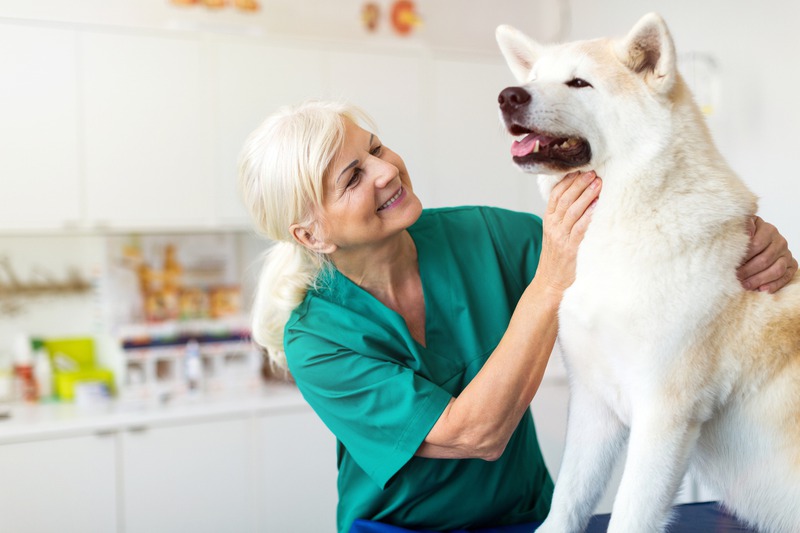As time marches on, our furry companions grow older alongside us. Observing a pet transition into their golden years can be a bittersweet experience. The playful puppy or kitten antics may have given way to serene afternoons and early bedtimes, but our bond only deepens. With this change comes a crucial question for any pet parent: how can I determine if my senior pet needs specialized geriatric care? Understanding the signs can mean a world of difference for our aging pets’ quality of life and health. Let’s explore the signs and steps we can take to ensure our senior pets get the best care possible.
Recognizing the Signs of Aging in Pets
Firstly, it’s essential to know what normal aging looks like. Each pet ages differently, but there are general indicators that our beloved animals are entering their senior phase:
-
Graying around the muzzle or face
-
Less energy and decreased activity levels
-
Stiffness or difficulty in getting up
-
Changes in vision or hearing
-
Weight gain or loss
-
Changes in sleep patterns
When to Seek Specialized Care
Specific age-related changes are normal, but others may signal the need for a more focused geriatric approach. Here are some signs that your pet might need specialized senior care:
-
Lethargy or significant changes in activity levels
-
Difficulty in climbing stairs or jumping
-
Excessive drinking or urination
-
Persistent cough or changes in breathing
-
Inappetence or trouble eating
-
Changes in behavior or confusion
-
Unexpected weight changes
If you notice these signs, discussing senior care options with your vet might be time. Regular check-ups are crucial. We recommend bi-annual visits for senior pets instead of the usual annual check-ups. Prevention and early detection can make a significant difference in managing or treating age-related issues.
What is Geriatric Care for Pets
Geriatric care for pets focuses on maintaining health, comfort, and quality of life as they age. It might include changes in diet, the introduction of supplements, increased veterinary monitoring, pain management strategies, and adjustments to their home environment to help them stay comfortable.
Nutritional Needs
Senior pets may need a diet that’s easier to digest and meets their changing nutritional needs. Specialized senior formulas can address joint health, weight management, and heart health issues.
Health Monitoring
As pets age, their immune systems need to work more effectively. They’re more susceptible to diseases that didn’t pose as much risk when they were younger. Proactive health monitoring, including blood work and other diagnostic tests, becomes increasingly important to catch any early signs of disease.
Home and Lifestyle Adjustments
Modifications in the home can make a significant difference. Ramps, orthopedic beds, raised food bowls, and non-slip mats are just a few examples that can help our senior pets navigate their day-to-day life with more ease.
Finding the Right Support
When our pets show signs that they may need more than standard care, finding the right support is crucial. A good starting point is discussing their symptoms and changes in behavior with your vet for personalized advice.
Those seeking geriatric care in Apple Valley, CA for their pets can find veterinarians with special interests and training in caring for senior animals. We can help our pets enjoy their golden years with appropriate senior care.
Consider Other Preventive Care
If your senior pet has vision issues, it might be time to visit the vet ophthalmologist in Apple Valley, CA. Vision changes can be expected in older pets, and a specialist can provide treatments that significantly improve your pet’s quality of life.
Consider Regular Health Screenings
Health screenings are more than just regular physical examinations. They’d include:
-
Bloodwork
-
Urine analysis
-
Thyroid function tests
-
Eye examinations
These tests can reveal underlying health issues that might not be evident from a physical exam alone.
Geriatric Care Procedures
Some senior care may involve specific medical or surgical procedures. For those looking for options, visiting a spay and neuter clinic in Apple Valley, CA could also contribute to your pet’s long-term health. Although these are often considered earlier in a pet’s life, particular situations might necessitate such procedures in older pets for health reasons.
Mental Health and Enrichment
Lastly, mental health and enrichment remain essential throughout a pet’s life. Ensuring your senior pet engages in gentle play and mental stimulation can help them stay alert and reduce cognitive decline. Interactive toys, gentle training sessions, and short, frequent walks can all serve this purpose.
Tips for Mental Stimulation
Here are a few ways to keep your senior pet mentally stimulated:
-
Puzzle feeders to engage their problem-solving skills
-
New commands or tricks tailored to their mobility levels
-
Gentle scent games that encourage them to use their sense of smell
With the right approach, we can help our senior pets live out their later years with the care and dignity they deserve.
Final Thoughts
To see if your older pet needs extra care, watch how they act and look closely. Regular vet check-ups, the right food, and changes at home can help a lot. There are unique treatments, like eye care or surgery, for elderly pets. Love and attention are crucial for them. Pay attention to your pet’s needs and make their later years happy and comfortable.


